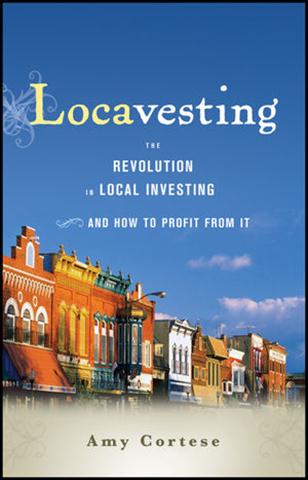 Journalist Amy Cortese has written a slew of articles on intriguing topics like barefoot running and the turf wars of Prosecco makers. The subject she turned into her first book, Locavesting: The Revolution in Local Investing and How to Profit from It (Wiley, $22.95, 9780470911389), happened by chance after a sharp-eyed literary agent spotted an article she had written for the New York Times Magazine. Titled "Locavestors," a term Cortese coined to describe grassroots financial innovators, the piece featured the comeback of regional stock exchanges in the wake of the 2008 financial meltdown--and becomes ever more topical as the economy continues to sputter.
Journalist Amy Cortese has written a slew of articles on intriguing topics like barefoot running and the turf wars of Prosecco makers. The subject she turned into her first book, Locavesting: The Revolution in Local Investing and How to Profit from It (Wiley, $22.95, 9780470911389), happened by chance after a sharp-eyed literary agent spotted an article she had written for the New York Times Magazine. Titled "Locavestors," a term Cortese coined to describe grassroots financial innovators, the piece featured the comeback of regional stock exchanges in the wake of the 2008 financial meltdown--and becomes ever more topical as the economy continues to sputter.
In Locavesting, Cortese explores the burgeoning "citizen finance" movement taking place across the country. "The book is a confluence of a lot of things I had been writing about--local food systems, sustainable business, entrepreneurship, and venture capital," she explained. "After the financial crisis hit, I started digging around and noticed that not only are people looking for alternatives, they're actually out there trying to create them."
Banking with local institutions, crowd-funding, cooperatives, investment clubs, direct public offerings and creating local stock exchanges are some of the ways residents are allocating resources to benefit local businesses--earning profits while helping to create stronger, more vibrant communities. As with "Buy Local" initiatives, which have shown that a 10% change in spending can have a big impact on a community, notes Cortese in Locavesting, so, too, can a similar shift in investment dollars.
Among the locavestors from coast to coast Cortese profiles in the book are nine police officers in Clare, Mich., who banded together to buy a beloved bakery. They changed its name to Cops & Doughnuts and turned the once-struggling enterprise into a regional sensation that has helped revitalize Clare's downtown. Another great example comes from the bookselling world: in Brooklyn, N.Y., where Cortese resides, Jessica Stockton Bagnulo and Rebecca Fitting opened Greenlight Bookstore in 2009, a venture funded partly by Fort Greene residents who saw a return on their investment after just a year. With community investing "you have a sense of connection, and that's what people wanted in that neighborhood," said Cortese.
Avid Bookshop owner Janet Geddis, who read Locavesting in a day, used Greenlight's model to help finance her store's bricks-and-mortar location in Athens, Ga., opening in mid-October. Ten "community lenders" gave loans in increments of $1,000, to be paid off within five years of the shop's opening. Geddis announced her plans in 2008, before the economy began its downward spiral. "It has been an adventurous but decidedly uphill battle ever since," she said. "I couldn't have put this store together with such success if it weren't for the local community."
Since Locavesting was published several months ago, Cortese has heard from an array of readers who are putting its ideas into practice, including financial advisors with clients looking for non-traditional investment opportunities and people involved in revitalizing or sustaining crucial retail districts in their towns. Main Street business owners and chamber of commerce members were among the attendees who turned out for Cortese's signing at BookTowne in Manasquan, N.J. Tonight, Copperfield's Books in Sebastopol, Calif., is co-hosting an event for Cortese with the Sonoma County GoLocal Cooperative, a network of locally-owned businesses, residents, non-profit organizations and government agencies.
More than 20 North Carolina residents are convening weekly this fall for a six-part Locavesting study group co-sponsored by Transition Hendersonville, a local chapter of an international movement focused on helping communities find more sustainable ways to live. After reading Cortese's book, Transition Hendersonville members Roger Bass and Karen Jackson decided to form the group. They put the word out to see if there was interest and were met with an enthusiastic response. "It seems people are ready for this idea," said Bass.
Several retirees, self-employed individuals, a college business professor and others have joined the study group. Members, whose investing know-how ranges from novice to fairly experienced, will be brainstorming ideas on how best to implement locavesting efforts in their area. As a first step toward supporting the local economy, participants were encouraged to buy the book from an indie retailer like Fountainhead Bookstore in Hendersonville.
Along with Greenlight Bookshop, Cortese spotlights two other bookstores in Locavesting. When financial difficulties threatened the future both of Brooklyn's Community Bookstore and Tsunami Books in Eugene, Ore., "bookworms in shining armor" rallied with moral and financial support. "As the dust settles around Borders, one thing that's becoming clear is people really want their independent bookstores," said Cortese. "They add to the quality of our lives and the character of our neighborhoods." --Shannon McKenna Schmidt








BINC.1118.T2.2024YEARENDCAMPAIGN.jpg)
 The
The 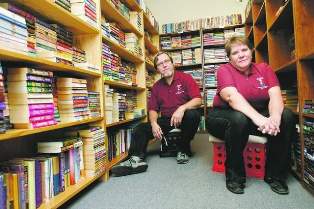 Alan and Carol Wollard have opened the
Alan and Carol Wollard have opened the  Today's front page of the New York Times offers an updated look at the "striking acceleration" of
Today's front page of the New York Times offers an updated look at the "striking acceleration" of 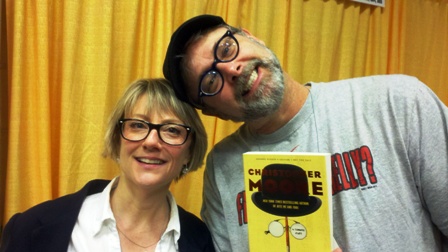
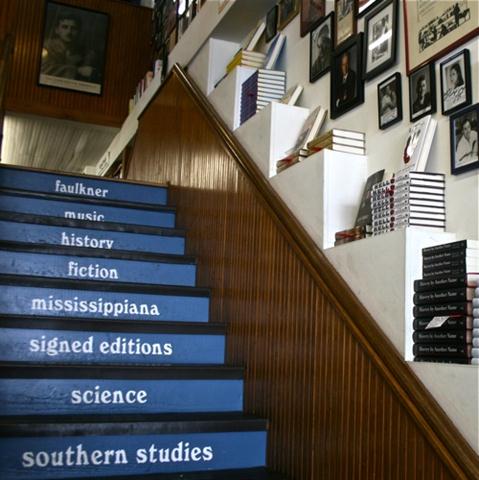 During the past three decades, Oxford, Miss., "has become one of the South’s artiest and most literate college towns, a pint-size and much more navigable Austin, Tex.," Dwight Garner observed in his New York Times
During the past three decades, Oxford, Miss., "has become one of the South’s artiest and most literate college towns, a pint-size and much more navigable Austin, Tex.," Dwight Garner observed in his New York Times 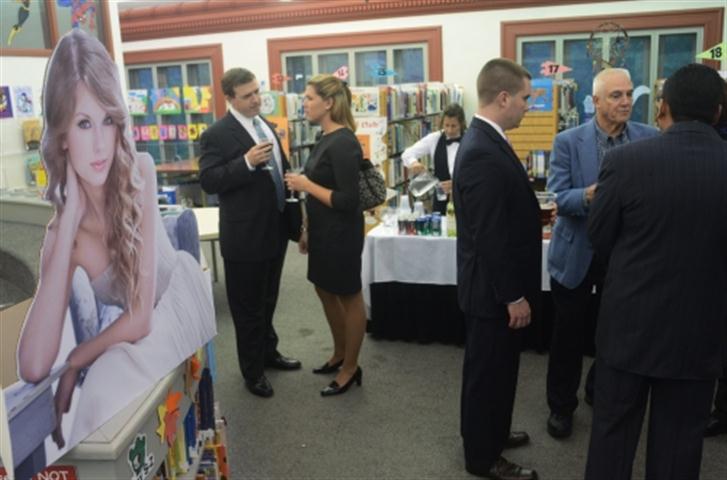 Country music star
Country music star 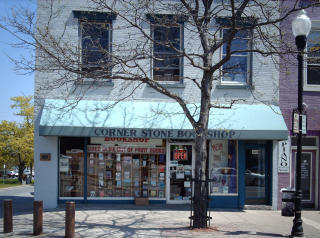 Nancy Duniho, owner of the
Nancy Duniho, owner of the  A
A  NPR's Weekend Edition Sunday explored the story behind the story of
NPR's Weekend Edition Sunday explored the story behind the story of  Journalist
Journalist  Even if you don't know much about history, you've probably heard about the significant people and milestones of the American westward expansion: the Alamo, Santa Anna, the Oregon Trail, Lewis and Clark, mountain men. In Lions of the West, award-winning author Robert Morgan (Gap Creek; Boon) tells the story of the American march to the Pacific Ocean through the lives of nine men, including Thomas Jefferson and Johnny Appleseed.
Even if you don't know much about history, you've probably heard about the significant people and milestones of the American westward expansion: the Alamo, Santa Anna, the Oregon Trail, Lewis and Clark, mountain men. In Lions of the West, award-winning author Robert Morgan (Gap Creek; Boon) tells the story of the American march to the Pacific Ocean through the lives of nine men, including Thomas Jefferson and Johnny Appleseed.